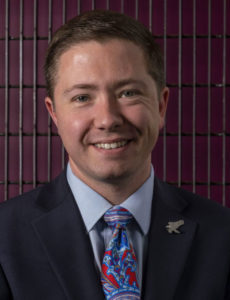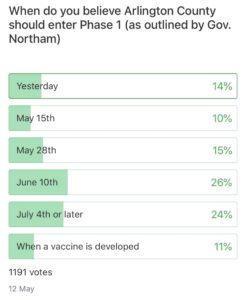 The Hurtt Locker is a biweekly opinion column. The views expressed are solely the author’s.
The Hurtt Locker is a biweekly opinion column. The views expressed are solely the author’s.
Not surprisingly, Arlington voters affirmed the political status quo in Tuesday’s special election for County Board. Takis Karantonis, bolstered by an impressive 71% of the absentee vote, easily dispensed with “progressive independent” Susan Cunningham and Republican Bob Cambridge.
Cunningham, who was endorsed by former independent County Board Member John Vihstadt, performed well in a half-dozen precincts and got more votes than Karantonis in nine precincts, including her home precinct Marshall. With little insight into the Arlington County Democratic Committee’s campaign operation, one can reasonably assume the political machine went into overdrive for the absentee ballot program. Kudos to ACDC.
As far as Republicans are concerned (speaking with some authority here), there’s a lot of work to do. Arlington Republicans struggle to recruit credible candidates, given the political reality in this community, and the campaign machinery is nowhere near as robust as the ACDC’s operation. Still, it’s important for Republicans and independents alike to show up to the public policy discussion — and even file as candidates.
A one-sided debate on the campaign trail or in the County Board chamber is no debate at all. And even if Republican candidates serve as “sacrificial lambs” on the ballot, the ideas still permeate the discussion. And sometimes those ideas are considered and even adopted by local policymakers. It’s one of the reasons I eagerly accepted the challenge of writing this column.
With the recent passing of respected longtime civic activist (and dues-paying Arlington Republican) Jim Pebley, Republicans should reflect on what makes a successful civic activist, regardless of partisan label. And while Pebley rose through Arlington’s civic infrastructure long before the hyper-partisan era we find ourselves in, I’m certain there are public policy conversations that can take place in neighborhoods without partisan labels that seem so toxic at the national level.
Consider Takis Karantonis’ resume: 25 years of urban and regional planning experience, 6 years as Executive Director of the Columbia Pike Revitalization Organization, as well as service on a number of boards and commissions. Likewise, Susan Cunningham’s record of public service in the community is impressive.
As one of the more public figures in the Arlington Republicans, I get asked about candidate recruitment and community messaging a lot. Arlington voters elect public officials with a track record of community service. Karantonis had the support of ACDC campaign machine, but someone with a robust community resume could build out campaign infrastructure that would rival a traditional political party.
Neighborhood associations, the Arlington County Civic Federation, the Committee of 100, and the myriad interest groups that meet to advance policy interests are all ways more diverse viewpoints can have a seat at the table and channels through which someone with interest in strengthening this community could raise their public profile.
It starts by saying hello to your neighbor.
For the last eight months, it’s been an honor and a privilege saying hello to you and engaging in a community conversation around important issues. I’m grateful to the editors at ARLnow for giving me this space to both challenge myself and this community. And I’m thankful for those of you who chimed in along the way. I’m also encouraged by the conversation taking place between and among the other columnists. The discussion is as robust as it is diverse.
This will be my final column for ARLnow for the foreseeable future. Like many young professionals who come to Arlington after college to find work in public policy and activism, I must move on to the next opportunity. I encourage more young people who call Arlington home (even temporarily) step up and engage community and civic leaders around issues that are important to them. Thank you.
À la prochaine et laissez les bons temps rouler!
Matthew Hurtt was an 11-year Arlington resident, and he is still passionate about localism and government transparency and accountability. Hurtt was a member of the Arlington Heights Civic Association and the chairman of the Arlington Falls Church Young Republicans. Hurtt prides himself on his ability to bring people of diverse perspectives together to break down barriers that stand in the way of people realizing their potential. He now resides in New Orleans, Louisiana.



